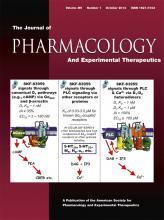Abstract
Esterase hydrolysis of drugs can accelerate their elimination, thereby limiting their efficacy. Polyethylene glycol (PEG) covalently attached to drugs (pegylation) is known to improve the efficiency of many drugs. Using as a test agent the novel phospho-ibuprofen (PI), we examined whether pegylation of PI could abrogate its hydrolytic degradation by esterases; PI, known to inhibit colon cancer growth, has a carboxylic ester hydrolyzable by carboxylesterases (CES). We covalently attached mPEG-2000 to PI (PI-PEG) and studied its stability by exposing it to cells overexpressing CES and by administering it to mice. We also evaluated PI-PEG’s anticancer efficacy in human colon cancer xenografts and in Apcmin/+ mice. PI-PEG was stable in the presence of cells overexpressing CES1 or CES2, whereas PI was extensively hydrolyzed (90.2 ± 0.7%, 14.3 ± 1.1%, mean ± S.E.M.). In mice, PI was nearly completely hydrolyzed. Intravenous administration of PI-PEG resulted in significant levels in blood and in colon cancer xenografts (xenograft values in parentheses): area under the curve for 0–24 hours = 2351 (2621) (nmol/g) × h; Cmax = 1965 (886) nmol/g; Tmax = 0.08 (2) hour. The blood levels of ibuprofen, its main hydrolytic product, were minimal. Compared with controls, PI-PEG inhibited the growth of the xenografts by 74.8% (P < 0.01) and reduced intestinal tumor multiplicity in Apcmin/+ mice by 73.1% (P < 0.01), prolonging their survival (100% versus 55.1% of controls; P = 0.013). Pegylation protects PI from esterase hydrolysis and improves its pharmacokinetics. In preclinical models of colon cancer, PI-PEG is a safe and efficacious agent that merits further evaluation.
Footnotes
- Received June 2, 2014.
- Accepted July 18, 2014.
This work was supported in part by an assistance award [W81XWH-10-1-0873] from the US Army Medical Research Acquisition Activity. B.R. has an equity position in Medicon Pharmaceuticals, Inc. P.P.C. is a consultant for Medicon Pharmaceuticals, Inc.
↵
 This article has supplemental material available at jpet.aspetjournals.org.
This article has supplemental material available at jpet.aspetjournals.org.
- Copyright © 2014 by The American Society for Pharmacology and Experimental Therapeutics
JPET articles become freely available 12 months after publication, and remain freely available for 5 years.Non-open access articles that fall outside this five year window are available only to institutional subscribers and current ASPET members, or through the article purchase feature at the bottom of the page.
|







